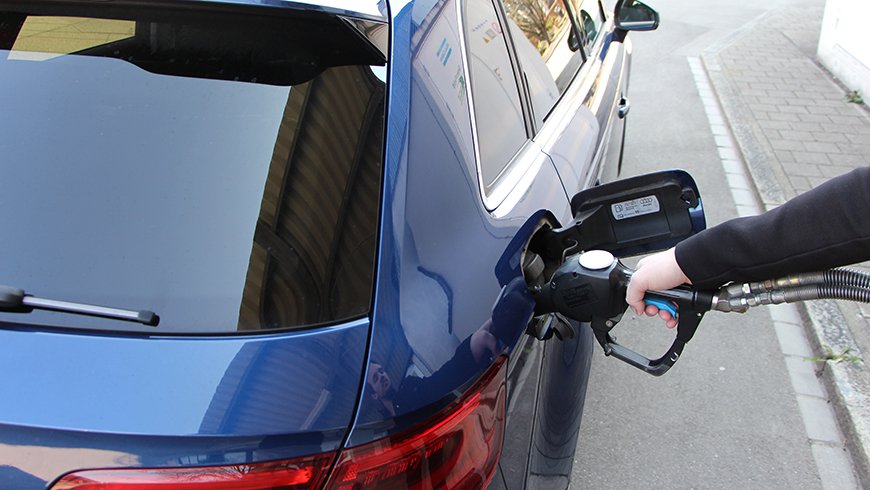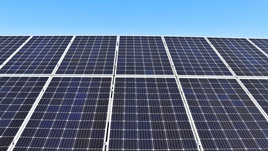Canton of Zurich supports Empa project
Synthetic gas instead of fossil energy

Using existing transport systems
Synthetic methane can be produced from renewable electricity, water and carbon dioxide (CO2) and easily transported via the gas grid. The infrastructure is thus in place, as are trading mechanisms, standards and expertise. This makes it one of the few options for supplying Switzerland with renewable energy during winter. Synthetic methane can also be used in liquid form as an alternative to diesel for long-distance cargo transport, and it enables the electricity, heating and transport sectors to be linked. Research into the production of synthetic methane also serves as a basis for the development of synthetic kerosene, which should enable CO2-neutral air travel in the future.
"It is a key question for protecting our climate: How can we make surplus solar energy from summertime available all year round in order to become CO2-free – especially in transport," says Martin Neukom, Head of the Building Department of the Canton of Zurich. Although the conversion of renewable electricity into synthetic methane is not new, various fundamentals are still missing for the classification and comparative evaluation of future energy supply and mobility concepts.
Brigitte Buchmann, member of Empa's Board of Directors and strategic project leader, stresses that developing reliable energy-related and economic data is, therefore, a main focus of the project. "The project consortium consists of partners covering the entire value chain, i.e. from Empa researchers to energy suppliers, fueling station and fleet operators all the way to industrial partners in the technology sector."
Empa fueling station with synthetic methane
The goal of the project is to expand "move" – Empa's future mobility demonstrator, where various electric and hydrogen mobility projects are already underway – to include a production facility for synthetic methane by 2021. At the connected fueling station, trucks provided by a project partner can be refuelled with CO2-neutral, synthetic methane. A process developed at Empa will be used to produce this methane. In parallel, the researchers will investigate cost structures and develop economic models, which can serve as a basis for decision makers to shape the framework conditions for future post-fossil mobility.
The project consortium is thus supporting efforts to gradually replace fossil fuels with sustainably produced renewable energy carriers. The financial commitment of the Canton of Zurich and various industrial partners shows that there is great interest in such solutions.
-
Share






